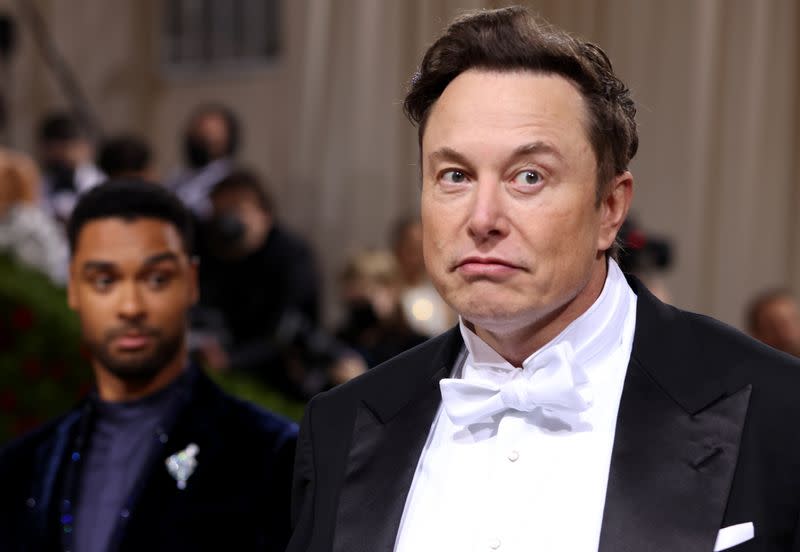Musk to jury: Just because I tweet something, doesn't mean people believe it

By Jody Godoy
SAN FRANCISCO (Reuters) -Elon Musk, Tesla Inc's chief executive, testified on Friday that investors do not always react to his Twitter messages as he expects, defending himself in a fraud trial over his 2018 tweet that he had funding to take the electric carmaker private.
Musk's testimony began with questions about his use of Twitter, the social media platform he bought in October. He called it the most democratic way to communicate but said his tweets did not always affect Tesla stock the way he expected.
"Just because I tweet something does not mean people believe it or will act accordingly," Musk told the jury in San Francisco federal court.
Musk testified for less than 30 minutes before court adjourned until Monday and he was not asked about his 2018 tweet that he was considering taking Tesla private and that he had "funding secured."
He is expected to address why he has insisted he had Saudi investor backing to take Tesla private, which never occurred, and whether he knowingly made a materially misleading statement with his tweet.
The case is a rare securities class action trial and the plaintiffs have already cleared high legal hurdles, with U.S. Judge Edward Chen ruling last year that Musk's funding post was untruthful and reckless.
Shareholders alleged that Musk lied when he sent the tweet, costing investors millions.
Musk, wearing a dark suit over a white button-down shirt, spoke softly and in a sometimes bemused manner, a contrast to his occasional combative testimony in past trials.
Musk described the difficulties the company went through around the time he sent the "funding secured" tweet, including bets by short-sellers that the stock would fall.
"A bunch of sharks on Wall Street wanted Tesla to die, very badly," he said, describing short-sellers, who profit when a stock falls in price.
He said short-sellers plant false stories and said the practice should be made illegal.
Shares of Tesla ended about 5% higher at $133.42.
Earlier on Friday, Tesla investor Timothy Fries told the jury that he lost $5,000 buying Tesla stock after Musk sent the tweet, which sparked volatile swings in Tesla's stock.
Fries said that "funding secured" meant to him that "there had been some vetting, some critical review of those funding sources."
Musk's attorney, Alex Spiro, told the jury in his opening statement Wednesday that Musk believed he had financing from Saudi backers and was taking steps to make the deal happen. Fearing leaks to the media, Musk tried to protect the "everyday shareholder" by sending the tweet, which contained "technical inaccuracies," Spiro said.
Guhan Subramanian, a Harvard Law School professor, told the jury that Musk's behavior in 2018 was "unprecedented" and "incoherent" in terms of structuring a corporate deal because he went public with his intent without proper financial or legal analysis.
A jury of six men and three women will decide whether the tweet artificially inflated Tesla's share price by playing up the status of funding for the deal, and if so, by how much.
The defendants include current and former Tesla directors, whom Spiro said had "pure" motives in their response to Musk's plan.
(Reporting by Tom Hals in Wilmington, Del., and Jody Godoy in San Francisco; Editing by Noeleen Walder, Peter Henderson, Matthew Lewis, Daniel Wallis and David Gregorio)

 Yahoo Finance
Yahoo Finance 